21st Century Leadership – Masterclasses
Our world is getting ever more complex and business needs to adapt to new challenges every day. To keep up in this rapidly changing world, leaders need to stay ahead of the curve!
This is why Prof. Dr. Fred van Eenennaam is hosting the one-evening 21st Century Leadership Masterclasses that give you access to:
- The most relevant Harvard Business Cases on real-life challenges
- Enlightening conversations with fellow experienced business leaders
- Insights from the best topic experts
So far 186 business leaders benefited from the discussions of complex strategic challenges, transformation processes, as well as corporate governance dilemmas.
Take full advantage of these insightful discussions by joining on location or online from anywhere in the world!
The 2025 Agenda
Apr 15 | Corporate Governance Special
Aug 26 | Net Positive Leadership: Embedding Purpose for Sustainable Growth Beyond Profits
Nov 18 | Corporate Governance Special
Jan 27 | ESG and Shared Value Creation
March 17 | Digital Innovation and Futureproof Strategy
Register as an online or on-site participant from 473 Euros by clicking “Select modules and dates”
*Each masterclass is a 5-hour-long session from 16:00 to 21:00 (CET).
** The sessions are hosted at Loetje Oudekerk aan de Amstel, and the on-site fee also includes catering

Session Details

Net Positive Leadership: Embedding Purpose for Sustainable Growth Beyond Profits
Aug 26, 2025

Mounting social and environmental pressures are reshaping the competitive landscape for companies in every industry. Take the next step towards achieving the ESG goals of your business while maintaining economic growth! What are the strategies that yield results?
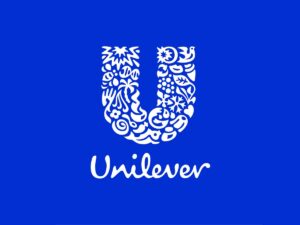
Unilever
Unilever’s transformation under Paul Polman offers a real-world success story of aligning purpose with profit, demonstrating how long-term value can be created through sustainability. Polman’s visionary leadership and bold decisions led Unilever to become the first international corporation to successfully execute a sustainability transformation, balancing short-term financial goals with long-term environmental and social targets.
Guest Speaker: Dr. Giorgos Demetriou, Circular Economy Alliance

Digital Innovation and Futureproof Strategy
March 18, 2025
Open AI: Idealism meets Capitalism
In November 2023, the board of OpenAI, one of the most successful companies in the history of technology, decided to fire Sam Altman, its charismatic and influential CEO. In the last year, the company had introduced ChatGPT, the fastest-growing app in history, and achieved a valuation of almost $90 billion. Altman had become the public face of AI and was instrumental in making the remarkable progress possible. Over five chaotic days, the company went through three CEO changes, had 90 percent of its employees almost move to Microsoft, and saw five of the six original members of the board resign and be replaced by two new members.
Replika Embodying AI
“Replika is an AI companion who cares. Always here to listen and talk.Always on your side. It is a space where you can safely share your thoughts, feelings, beliefs, experiences, memories, dreams – your private perceptual world.”
Eugenia Kuyda launched Replika AI in 2017 as an empathetic digital companion to combat loneliness and provide emotional support. The platform surged in popularity during the COVID-19 pandemic, offering non-judgmental support to isolated users. By 2023, Replika boasted 10 million users, with 40% engaging in romantic partnerships with their Replikas. Kuyda’s strategy of prioritizing users’ emotional well-being over engagement metrics was successful: 85% users reported improved mood post-interaction.
Being part of the $6.8 billion conversational AI market and the $23.6 billion emotion detection market Replika generates $2 million in monthly revenue. What are the ethical boundaries of AI-human relationships? What is the evolving role of AI in addressing loneliness?

Corporate Governance Special
April 15, 2025
Silicon Valley Bank: Gone in 36 hours
Silicon Valley Bank (SVB) in March 2023, an event as unpredicted as it was quick. SVB funded nearly half of all U.S. venture-backed startups and at the end of 2022 held $173 billion in deposits, largely comprising the venture capital those startups had raised. On February 28, 2023, Moody’s warned SVB about a potential credit rating downgrade, reflecting concerns over “funding, liquidity, and profitability” which factored in substantial unrealized losses on SVB’s debt securities. To strengthen its balance sheet, SVB sold $21 billion in securities on March 8, but the move shocked its customers, as it resulted in a realized loss of $2 billion. What triggered the death spiral? What went wrong, and what lessons could be learned?
TikTok the Algorithm will see you now
In a world where attention is a scarce commodity, this case explores the meteoric rise of TikTok, an app that transformed from a niche platform for teens into the most visited domain by 2021 surpassing even Google. “When you gaze into TikTok, TikTok gazes into you.” TikTok elevated the design of algorithmic systems to a new level, and outperformed U.S tech giants in user engagement. The app faced a host of challenges including a complicated relationship with the Chinese government, legislative scrutiny in the U.S., and global concerns over data security but grew unabated. How did an app targeting American teenagers presenting music and dance videos end up in the same national security discussion as chips and semiconductors that could power missiles and rockets?
Previously:

Digital Innovation and Futureproof Strategy
March 18, 2025
Open AI: Idealism meets Capitalism
In November 2023, the board of OpenAI, one of the most successful companies in the history of technology, decided to fire Sam Altman, its charismatic and influential CEO. In the last year, the company had introduced ChatGPT, the fastest-growing app in history, and achieved a valuation of almost $90 billion. Altman had become the public face of AI and was instrumental in making the remarkable progress possible. Over five chaotic days, the company went through three CEO changes, had 90 percent of its employees almost move to Microsoft, and saw five of the six original members of the board resign and be replaced by two new members.
Replika Embodying AI
“Replika is an AI companion who cares. Always here to listen and talk.Always on your side. It is a space where you can safely share your thoughts, feelings, beliefs, experiences, memories, dreams – your private perceptual world.”
Eugenia Kuyda launched Replika AI in 2017 as an empathetic digital companion to combat loneliness and provide emotional support. The platform surged in popularity during the COVID-19 pandemic, offering non-judgmental support to isolated users. By 2023, Replika boasted 10 million users, with 40% engaging in romantic partnerships with their Replikas. Kuyda’s strategy of prioritizing users’ emotional well-being over engagement metrics was successful: 85% users reported improved mood post-interaction.
Being part of the $6.8 billion conversational AI market and the $23.6 billion emotion detection market Replika generates $2 million in monthly revenue. What are the ethical boundaries of AI-human relationships? What is the evolving role of AI in addressing loneliness?

ESG, and Strategic Sustainability
Jan 21, 2025

Mounting social and environmental pressures are reshaping the competitive landscape for companies in every industry. Take the next step towards achieving the ESG goals of your business while maintaining economic growth! What are the strategies that yield results?

Reimagining Enel: Enabling Sustainable Progress
Now is the time for the European energy market to make the transition to a sustainable and independent market. Few companies match Italy’s biggest firm in putting its money where its mouth is. On November 24th, 2020 Francesco Starace, CEO unveiled plans to invest €160bn by 2030 to virtually triple its renewable-energy capacity to 120 gigawatts and transform its grids in Europe and Latin America to prepare for an all-electric future.
Does Europe have a chance to have a renewable supply chain independent of Asia and China? Is CEO Francesco Starace the right person to lead the energy transition? Can the two contradicting souls of Enel be reconciled?
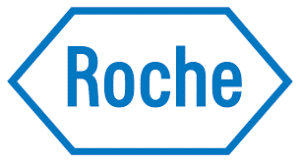
Roche: ESG and Access to Healthcare
In May 2022, Roche Group hosted its first ESG investor event where access to healthcare had been positioned as Roche’s greatest contribution to society. This is no easy task by any measure
How can Roche improve access to digital and pharmaceutical solutions when in many countries local healthcare infrastructures, digital strategies, and innovative financial models are not developed?
Does Roche manage to keep it a strategic priority instead of making it a “compliance exercise” internally?

Corporate Governance Special
November 26, 2024
What Went Wrong with Boeing’s 737 Max?
In what ways can the board better oversee technical and operational risks to prevent failures like the two Boeing 737 Max airplane crashes in 2018 and 2019? Look at the events both through the lens of industry and competitive dynamics, and through the lens of corporate culture and development processes at Boeing.
The development of the 737 Max is described in detail, including the factors and decisions that led to the development of the Maneuvering Characteristics Augmentation System (MCAS), the system that ultimately led to the crashes. How could board oversight have been strengthened to catch potential issues earlier? What role should the board play in guiding crisis communication?
Target is the target
Are there ways for the board to support positive community relations while navigating potentially divisive issues?
In 2016, Target CEO Brian Cornell must determine how to respond to the debate over North Carolina’s recently signed law, commonly known as “HB2,” that invalidated LGBT non-discrimination ordinances at the local level. In contrast to other organizations, Target did not threaten to leave the state. However, its public statement in support of LGBT rights prompted a boycott against its stores. Adding to the difficulty was the fact that Target was caught on the other side of the debate in 2010 in one of the earliest high-profile controversies resulting from the Supreme Court Citizens United ruling.
The case covers current campaign finance regulations as they relate to business as well as Target’s lobbying activities regarding online sales tax legislation.

Digital Innovation and Futureproof Strategy
Oct 15, 2024
16:00 – 21:00 CET
Vodafone: Managing Advanced Technologies and AI
presented by Prof. Dr. Fred van Eenennaam
Vodafone is operating in the fast-moving telecommunications market where innovation and scale are key. Faced with an onslaught of technological advances – big data, automation and artificial intelligence – CEO Vittorio Colao reflects on how he should change the organization to incorporate these advancements to improve the way the functions work, how to incorporate machine learning and artificial intelligence that de facto improve productivity and slash costs and what he could do to give back to society and make sure that new opportunities were created for the new generation.
The Digital Transformation of Freeport McMoRan:
The Strategic Use of Agile, AI and Data Analytics
As 2023 neared its end, Richard Adkerson, CEO and Chairman of Freeport McMoRan, anticipated a surge in copper demand, driven by the transition from fossil fuels to renewables. Recognizing these challenges, Adkerson prioritized operational efficiency and yield across Freeport’s global copper operations. Embracing the Fourth Industrial Revolution, Freeport invested heavily in technologies like artificial intelligence and data analytics to maximize copper extraction from existing mines. The ubiquity of these technologies raised questions about their potential as a sustainable competitive advantage for Freeport. How can Freeport use the technologies strategicly to ensure continued dominance in the copper industry?
presented by prof. Mark Esposito

Corporate Governance Special
April 16, 2024
Black Rock’s ESG investment dilemma
Now BlackRock is facing pressure from a variety of stakeholders. Republican legislatures are cutting their states’ investments in BlackRock funds, saying that the firm’s “woke investing” is damaging their states’ economies. Environmental groups are protesting that BlackRock is not divesting quickly enough from nonrenewable energy sources. Individual and institutional investors alike are confused by the lack of clear criteria for environmental, social and governance (ESG) funds, and analysts question whether ESG investing is sufficiently profitable.\
presented by prof Pablo Collazzo
Patagonia: Earth is now our only shareholder
On Sept 14, 2022 Yvon Chouinard the founder of the famous clothing and gear company announced that he is no longer Patagonia’s owner but the company is owned by planet Earth. The ownership is being transferred to an innovative combination of a perpetual purpose trust and a non-profit. What does the new governance structure look like? Does this structure support the mission of using profit to fight the environmental crisis? Is it a new model of how future business will look or is it a dead end?

ESG, and Strategic Sustainability
Jan 30, 2024
Case Discussions:
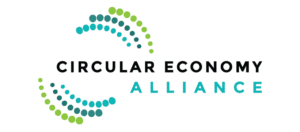
Circular Economy
A bold new approach to solving interconnected global crises! What if business systems could emulate nature? Purpose-built economies can be optimized to more efficiently mimic this perfect design. Businesses could benefit from embracing and leading the transition to a CE; in particular, pursuing circular opportunities could unlock almost USD 5 trillion by 2030. Decouple economic growth from resource depletion, eliminate waste, and achieve climate neutrality, while maintaining economic growth and competitive advantage. Discuss the example of companies who adapted a circular model and learn from their results and challenges!
Guest Speaker: Prof. Saman Sarbazvatan, Circular Economy Alliance

Ferrari: Shifting to Carbon Neutrality
Ferrari is attempting to make the ultimate luxury product carbon-neutral and ESG-compliant!
On the Capital Markets day of June 16, 2022, Vigna announced that carbon neutrality, or bringing the company’s carbon footprint to zero, is now going to be at the core of Ferrari’s strategy. Ferrari would reduce the emissions of its suppliers, its production process as well and its car fleet. These announcements came in a context of economic and political uncertainty, and regulatory changes in the automotive industry. Is it a realistic mission in the resource-heavy automotive industry hindered by the European energy crisis due to the 2022 Russian and Ukrainian war and the post-pandemic resource scarcity? Vigna wondered, “Have I been too bold or not bold enough?”

Corporate Governance Special
Nov 21, 2023
Case Discussions:
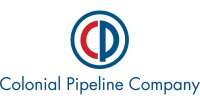
Ransomware attack at Colonial Pipeline Company
On the morning of May 7, 2021, Colonial Pipeline Company became aware that the company had been the victim of a malicious ransomware attack that had stolen and locked up company data. The extortionists demanded 75 bitcoins (worth about $4.4 million at the time) in exchange for the decryption tool needed to unlock the data. To contain the system infection, the control room promptly shut down all company pipelines that transported nearly half of all refined oil products consumed in the East Coast of the United States.
Within hours, external experts and governmental authorities were assembled to help but information was still limited on how to manage the cyberattack. As the passing of every minute threatened the oil supply to 13 states and the nation’s capital, CEO of Colonial Pipeline, Joseph Blount had to make one crucial decision: whether to pay the ransom or not. The case discusses Colonial Pipeline’s cybersecurity practices, ransomware trends, detail of the ransomware attack at Colonial, impact of the attack, Colonial’s response to the attack, and post-attack repercussion. Overall, the case prompts readers to contemplate how organizations should prevent and respond to the ever-increasing threat of cyber breaches.

Accounting for Bitcoin at Tesla
On February 8, 2021, Tesla revealed, through its 10-K filing to the Securities and Exchange Commission (SEC), that it had purchased $1.5 billion of Bitcoin, totaling 7.5% of the company’s cash, and that it planned to accept payments in the cryptocurrency soon. These announcements came at the heel of the sixth straight quarter of positive GAAP profit and the first profitable fiscal year in the company’s history.
The revelation about Tesla’s Bitcoin purchases were met with mixed reactions by stock investors and market participants. This case centers around the accounting treatment of Bitcoin at Tesla: what does the accounting treatment say about Bitcoin as an asset, and what are its implications for Tesla’s profitability under the Generally Accepted Accounting Principles or Elon Musk’s compensation incentives? The case also raises questions about whether investing in Bitcoin is consistent with the company’s strategy or could be deemed a form of speculation, and whether Musk’s public communications about cryptocurrencies (e.g., his cryptocurrency-related “Tweets”) constitute a form of market manipulation.
presented by Prof. Charles C.Y. Wang, Harvard Business School
Other Executive Education Programs:
Maximize Your Board’s Potential Seminar
Trusted by 206 companies

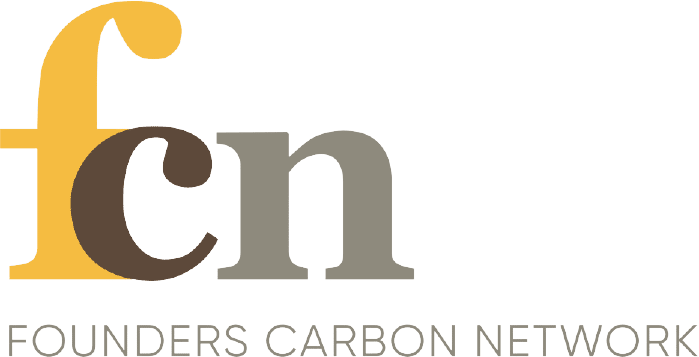


Program Director
Prof. Dr. Fred van Eenennaam besides being an esteemed academic is an international non-executive and supervisory board member and the director of the consultancy firm The Decision Group.
He’s been teaching Strategy & Governance to executives, board members, and MBAs for 15 years.
He was the 8th member of the Microeconomics of Competitiveness Initiative at Harvard Business School and Prof. M. E. Porter, Ph.D. added him to his HBS Hall of Fame in 2012.
FAQ
During the Harvard Business Case Method you can put yourself in the shoes of decision-makers at a real organisation facing a business issue. Often, the objective of the discussion is not to reach a consensus, but to understand how different people arrive to diverse conclusions. The discussions help you to get insights into various strategic and governance challenges and improve your decision-making process.
Read more about the Case Method.
One business case discussion can take 1 -2 hours long., depending on the session. During the masterclasses the case discussions lasts for 1 hour 30 mins.
Our programs are dedicated to executives, directors and business leaders. You can expect to have practical discussions with a small group of peers during the sessions. This ensures high quality, dynamic conversations and match making opportunities.
If you signed up to one of our programs but can’t make it, don’t worry! We can sign you up to the next one with the topic of your interest!
The Decision Institute Way

Real-world ready
We build learning around actual examples and practical tasks to make it all immediately relevant and useful.
Global network of experts
We work with world-leading industry experts to provide the most cutting-edge content.
Learn by doing
Build, create, experiment! We know from more than 20 years of experience that people learn best through active doing and making.
Work in teams
Collaboration is the modern core competence in a world of complexity and constant change.
